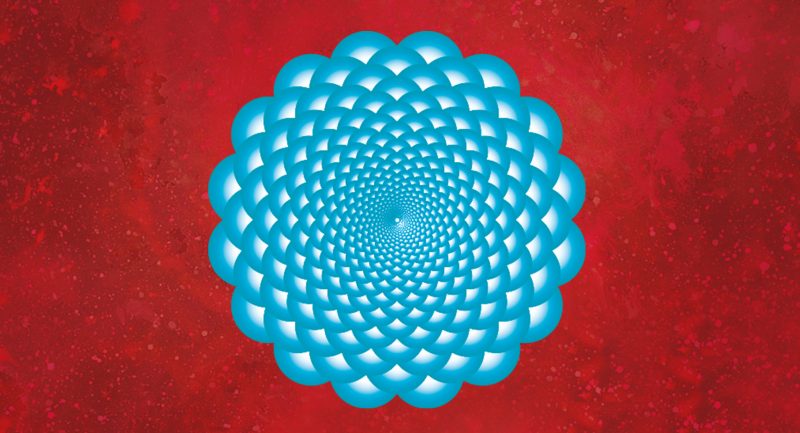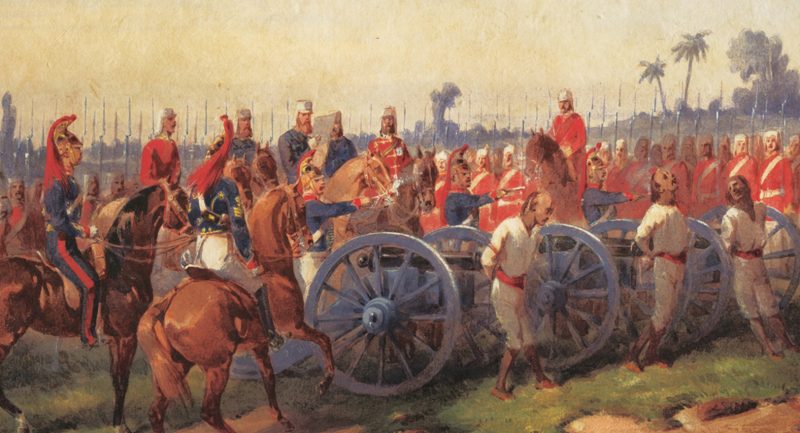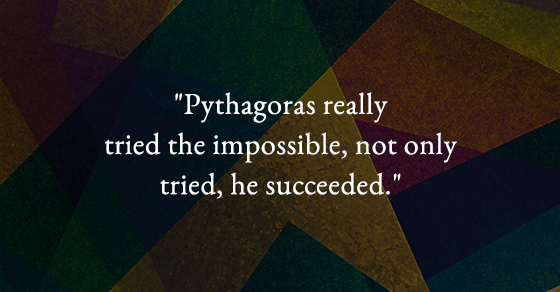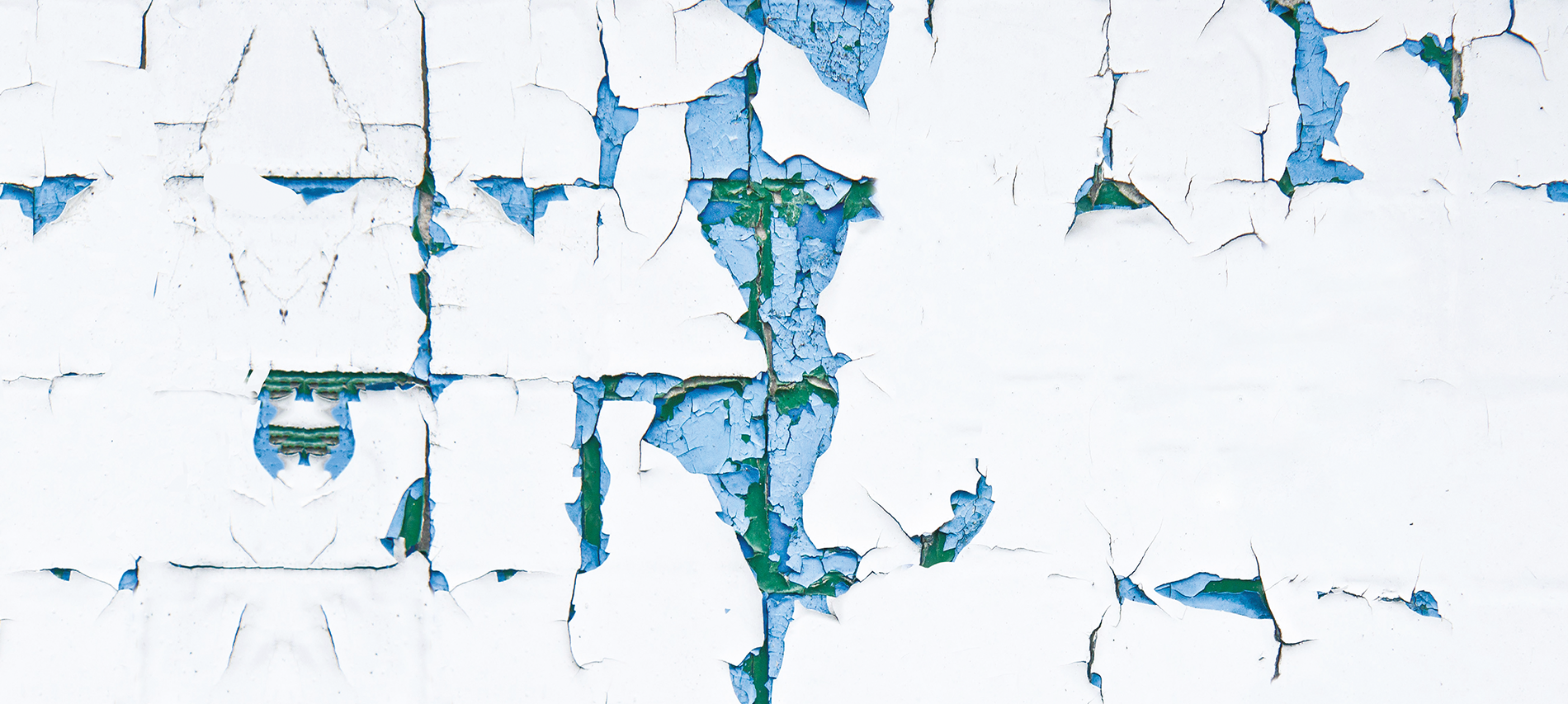
Taslima Nasrin is an eminent writer and secular humanist who has been subjected to forced banishment and multiple fatwas. She has been living in exile since 1994. For her powerful writing on women’s rights and uncompromising criticism of religious fundamentalism, the Bengali original of this book, Split: A Life, was banned by the Left Front in West Bengal as well as the Government of Bangladesh. Bold and evocative, Split: A Life opens a window to the experiences and works of one of the bravest writers of our times.
Here’s an excerpt from this powerful book.
————
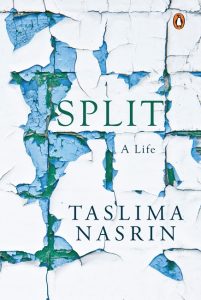
I asked for forgiveness because I had dared to accept such an exalted award despite being such an insignificant entity, for having shown the audacity even though I was utterly undeserving. Who knew if anyone forgave me in the end! After the event many writers and artists came up to congratulate me and I spoke to people I had never imagined I would have the opportunity to speak to. The day after, the news of the award ceremony was published on the front page of Anandabazar Patrika along with the headline ‘Taslima and Bhimsen steal the show’. Celebrations were being held all around me. Soumitra Mitra was very happy with how things had turned out and he was taking me to various places to meet various people. He surprised me with a visit to Rabindrasangeet exponent Kanika Bandyopadhyay. I was an ardent admirer of Kanika and standing in front of her was like a wave of euphoria had swept over my entire world. Ashesh and Mona, my companions during the Basanta Utsab trip, came to see me and took a bunch of photographs. I was suddenly an important person who no longer had to walk hunched along the corridors of Anandabazar and everyone knew who I was. Sagarmoy Ghosh offered me a chance to write a serialized novel for Desh. Floored by the offer I confessed I did not know how to write a novel. He smiled but did not rescind his offer. Nikhil Sarkar invited me to his Salt Lake residence and gave me a bunch of letters with which to go and meet a number of well-known people. Dutifully, the small writer with the big award took the letters with her and hesitantly went to pay a visit to the big guns. Mahasweta Devi, Meera Mukhopadhyay and many others—stars one was meant to show respect to when reaching for the sky. Whether I was even near the sky or I was where I had always been, I could scarcely tell for sure; I stood in front of the celebrities with all my insecurities and remonstrations intact. There was a trend in Calcutta to touch the feet of senior writers and artists to pay them one’s respects. Unused to the custom, I could not help but stand stiffly in front of most people I met. I had never managed to grasp the Bengali Muslim version of the same ritual either, the kadambushi. Though my heart was full of respect, I refrained from touching people’s feet and this must have irked many a senior, made them think of me as an upstart. But there was hardly anything I could do about it. If I was suddenly asked to till the field was I not supposed to stand there dumbstruck? It was impossible for me to abruptly start doing something I had never done before.
Despite not being one for formalities, I loved giving the small gifts I had brought from Bangladesh to my friends and well-wishers in Calcutta. Aveek Sarkar had handed the Ananda Puraskar to me and it was only right that I gift him a small token in return. So I took the multi-coloured jamdani sari I had worn for the award function, got its ornate border cut and had it framed in the best golden frame from a renowned framing shop on Park Street. When I reached the Anandabazar offices with my gift, Nikhil Sarkar was astounded by my daring. What I had failed to grasp was that for an art connoisseur and a man of such refined tastes as Aveek Sarkar, the limits of what he preferred among Indian art objects was probably defined by the Maqbool Fida Husain I saw adorning the walls. Otherwise, everything else was surely works by famous Western artists and painters. A jamdani sari border, no matter how beautiful, was not something that could possibly hope to be displayed in his room. I could not help but think to myself that the women behind such exquisite work were no less great artists, but the tasteful and the rich hardly considered them worthy of their attention. It was fortuitous that I had not turned up at Aveek Sarkar’s office directly with the framed piece of jamdani. Nikhil Sarkar advised that if I was bent on giving the gift to someone I should give it to Aveek Sarkar’s wife. Swallowing my discomfiture I did exactly that and managed to save Sarkar, the giant of Anandabazar, from any further embarrassment. A leading bureaucrat of the Bangladeshi consulate invited me and some authors to his place, primarily in my honour. As soon as I arrived the poets and writers of Calcutta surrounded me and inundated me with questions. So many questions of so many kinds— renaissance, revolution, feminism, backlash, modernism, postmodernism, my literary ideology, political beliefs, class struggle and so on. They waited for me to reply with startling answers while all I could do was stare at them in wide-eyed wonder. The questions appeared incomprehensible to me and seeing my bafflement they too began glancing at each other in surprise. Embarrassed, I wanted to curl up like a snail and disappear from the star-studded gathering, simply vanish without a trace. I did not want to answer any questions because I had no answers to give.








